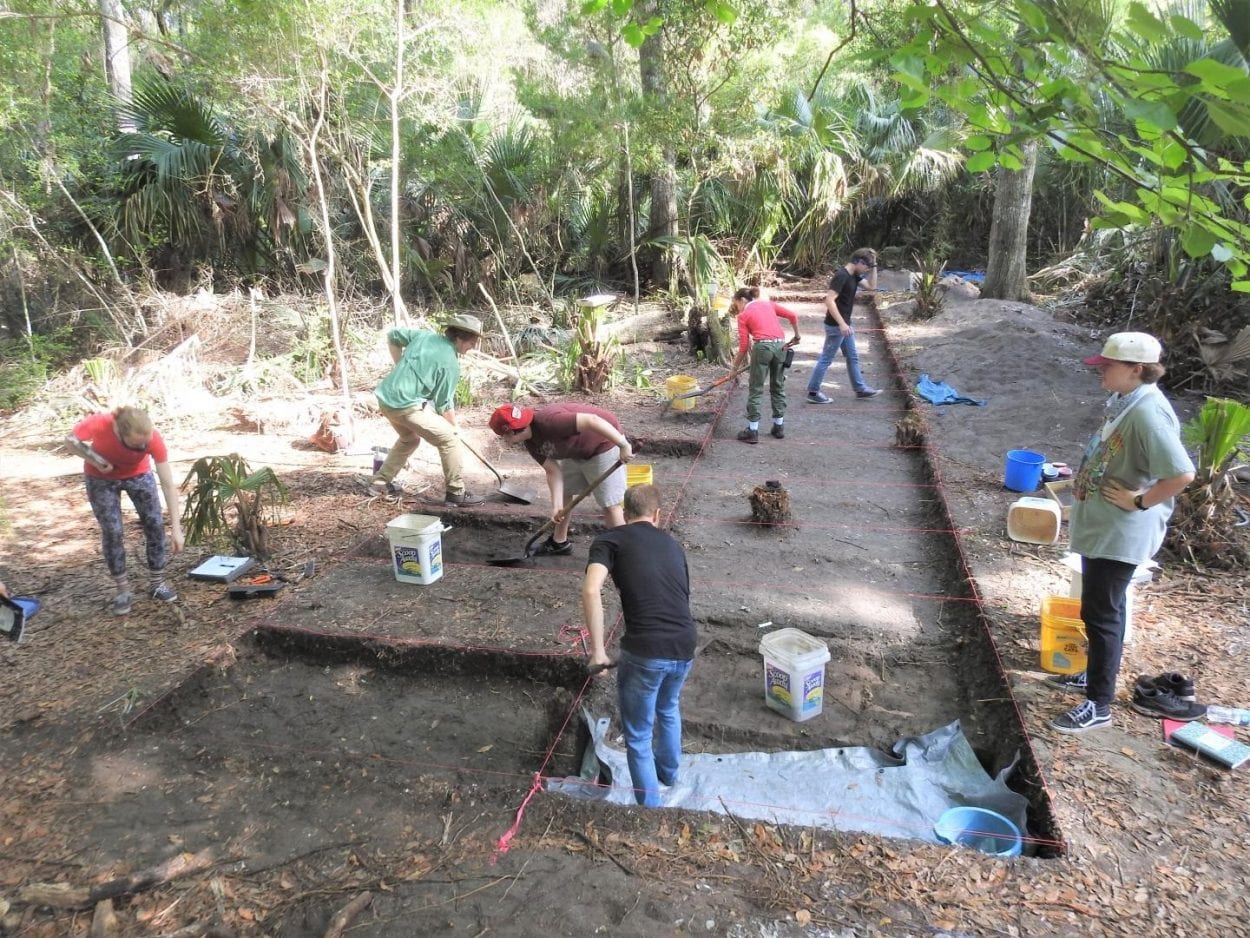The University of North Florida archaeology team is now fairly confident they have located the lost Indigenous northeast Florida community of Sarabay, a settlement mentioned in both French and Spanish documents dating to the 1560s but had not been discovered until now.
The type and amounts of Indigenous pottery the team is finding combined with the type and dates for European artifacts as well as cartographic map evidence strongly supports this location as the late 16th/early 17th century Mocama settlement.
The researchers have opened large excavation blocks with many exciting new artifact finds and are currently searching for evidence of houses and public architecture. The students, led by Dr. Keith Ashley, UNF Archaeology Lab director and assistant professor, have recently recovered more than 50 pieces of early Spanish pottery as well as Indigenous pottery that dates to the late 1500s or early 1600s. They have also recovered bone, stone and shell artifacts as well as burned corn cob fragments.
Expanding upon UNF excavations conducted at the southern end of Big Talbot Island in 1998, 1999, and 2020, the UNF research team has completed what is likely the most extensive excavations at a Mocama-Timucua site in northeastern Florida history.
This dig is part of the UNF Archaeology Lab’s ongoing Mocama Archaeological Project. This study focuses on the Mocama-speaking Timucua Indians who lived along the Atlantic coast of northern Florida at the time on European arrival in 1562. The Mocama were among the first indigenous populations encountered by European explorers in the 1560s.
The team hopes to ultimately confirm the discovery of Sarabay by finding evidence of houses and public architecture. They will continue to explore and learn about Sarabay’s physical layout during continuing fieldwork projects over the next three years.
Header Image Credit : University of North Florida





